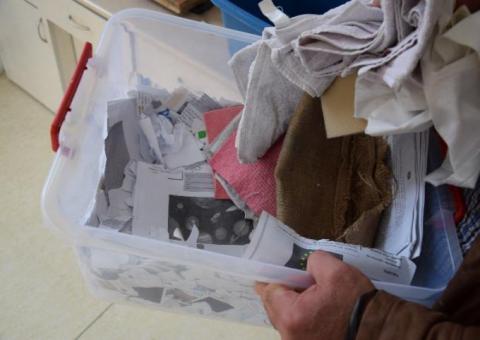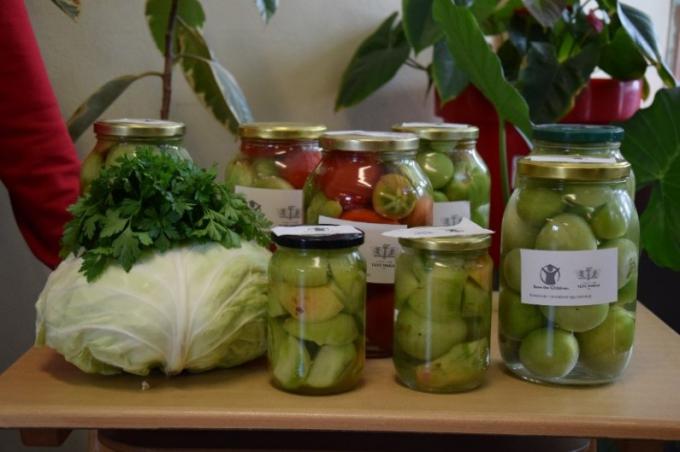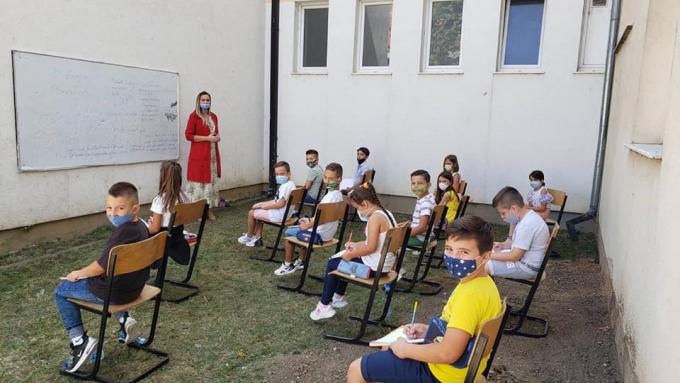A partnership for sustainable development goals at the Primary School ‘‘Tetë Marsi’’ in Peja

The primary school ‘Tetë Marsi’ is one of the largest schools in the city of Peja, Kosovo. Every day, over a thousand girls and boys attend basic education classes from 1st to 9th grade. One of the first things you notice when you enter the school building is the lushful plants and flowers in the corridors, its impeccable cleanliness and children in red school uniforms rushing to classes. However, this impeccapble cleanliness, which is due to, primarily diminished production of waste at school, which is a result of a joint endeavour of school mangement, staff and children to introduce and implement new measures toward environmental protection, starting with paper recycling. Supported by Save the Children in Kosovo, the initiative took place as part of a bottom-up approach, in support of the 2030 Global Agenda for Sustainable Development Goals (SDG), specifically focusing on SDG 4 on Quality Education, 11 on Sustainable Cities and Communities, 12 on Responsible Consumption and Production, and 17 on Partnerships for the Goals.
The process of recycling is a collective effort, where children, teachers and school management participate in collecting the paper, which is put in buckets, then grinded, mixed with water, laid in mesh to rest, and dried, using a conventional hair drier. These dried sheets are then used by children in their art classes as canvas for paintings and other drawings, or by the school management as printing paper. Apart from this, children learn about different paper format sizes, the process of recycling paper and the importance of preserving the environment. ‘‘Over 800 children have learned to recycle paper by doing it at school, and we plan in the future to introduce it to the younger children too’’ said the school director Turhan Bajraktari. In October 2020, this project was featured in the European Sustainable Development Week as a way to promote environmental protection and awareness, through the creation of an ecological culture for a cleaner school and a greener environment for a sustainable society.


This year, ‘Tetë Marsi’ celebrated its 55th anniversary and the postcards and invitations were proudly made of recycled paper and painted by children. Perhaps, this shows the motivation of the school, that even during the pandemic which saw schools close, to continue while at home, to recycle and reuse recycled materials as a means to contribute to Sustainable Development Goals, always working in close collaboration with parents, teachers and children. “I think that this is a very good opportunity for us to learn to care for the environment, raise awareness and engage in a meaningful activity. At home my brother saw me recycling paper and found it so interesting that he joined” said Bardha Gacaferi, a sixth grade girl at ‘’Tetë Marsi’’
The ‘Botanic Garden’ project is another exciting undertaking at “Tetë Marsi,’’ which aims to teach and provide children with practical knowledge on growing in house plants. Supported by Save the Children initally through the provision of seeds, covers and other necessary equipment, children learned to plant and grow flowers and vegetables like tomatoes, paprika, oregano, carrots and other vegetables and herbs. In additon, school children, supported by their teachers, learned the conservation process of vegetables (pickling) and after harvesting, some of these vegetables from the botanical garden were pickled. The school donated the pickled jars of tomatoes, peppers and cucumbers to the NGO ‘Qendra për Jetë të Pavarur’ which provides specialized services for people with mental impairment in Peja.

“IT WAS GREAT TO HAVE THE OPPORTUNITY TO LEARN AND GAIN FIRST HAND EXPERIENCE IN GROWING PLANTS AND VEGETABLES AT SCHOOL” –Bardha, a seventh grade child at primary school“Tetë Marsi”
Going green, lead to other measures taken by the school management, especially now during the COVID-19 pandemic, with the introduction of OUTDOOR EDUCATION as a measure to protect children. Furthermore, during forced school closures, children used the knowledge they had gained at school to plant flowers and vegetables at home, only to bring them back to the school garden when the school reopened. The school now also uses the garden area as an outdoor classroom, keeping children at a safe distance and protected from COVID-19.

For the school, this is indeed just the beginning of their many plans and efforts to continue implementing different environmental projects, enriching their environmental agenda and providing children with unique opportunities of learning and contributing to environmental protection.
The paper recycling and the botanical garden projects were supported by Save the Children in Kosovo in partnership with the Swedish International Development Agency-SIDA.